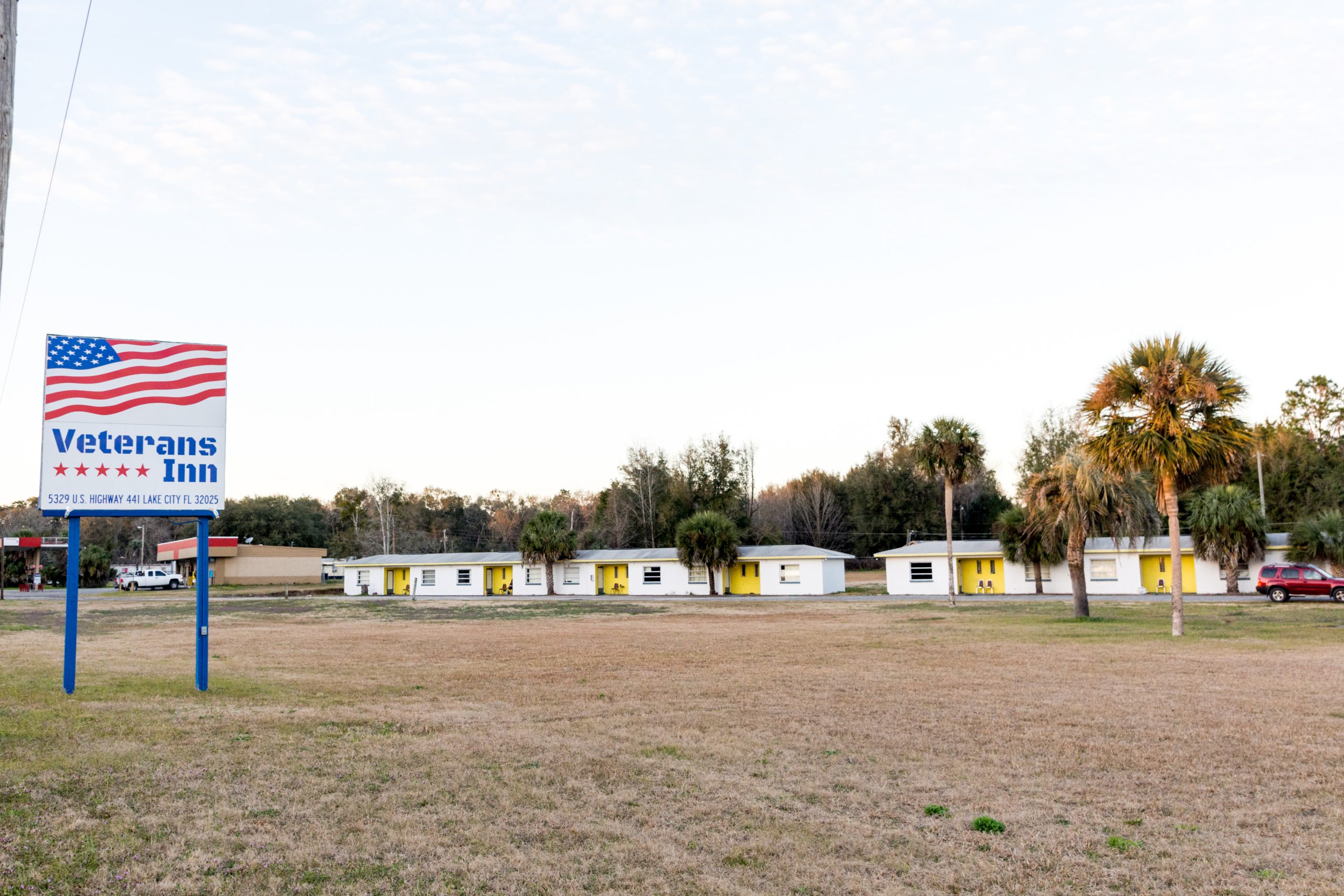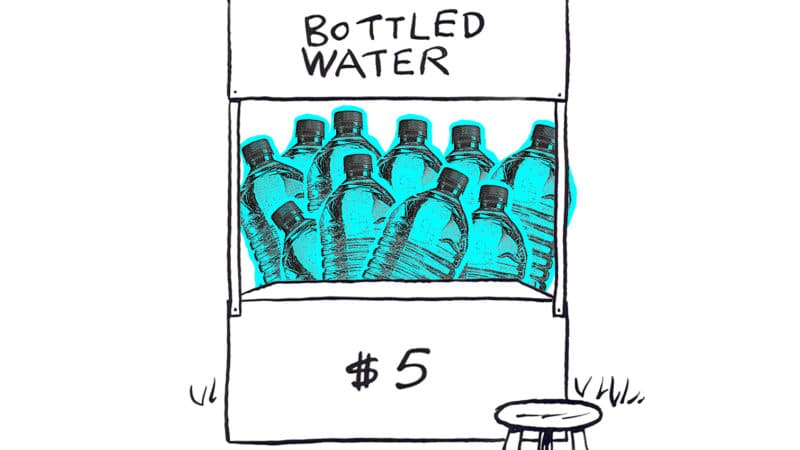By Rupal Ramesh Shah
We can put a man on the moon. We can blast a bomb 5,000 miles away from us and hit our target the size of a postage stamp, yet we cannot figure out how to put a roof on everyone’s head in America,” said Sean Cononie.
With this thought, Cononie — head of the COSAC Foundation — started the Veterans Inn in January 2017. Cononie’s idea stemmed from the suicide and homeless rates of veterans in the state of Florida, where the shelter is based. When it comes to suicide, he added, time is of the essence, and in such cases it’s crucial to have appropriate housing available immediately.
Ginny Dangola, the director of operations, says the name of the shelter is based on the needs Cononie saw, but the inn is open to anyone who needs a shelter in Lake City.
“The homeless are very capable people,” said Cononie. “They just need to be given a chance.”
Cononie also passionately discussed the need to have more services and solutions for long-term housing for the homeless. He believes that the homeless have been forgotten in America and that more attention should be paid to them and their needs.
It began as a transitional home for those undergoing homelessness and has since been a place where the homeless have not just gone to survive, but also thrive. Dangola proudly tells of people who thrived leaving the shelter as well, like one person who joined the Navy after staying at the Veterans Inn for a couple years.
Another resident saved up enough money to move to a nearby state and is now working as the manager of a McDonald’s. “Everyone becomes a part of your life here,” she continued. “It’s great to see them thriving and doing well.”
The Veterans Inn houses approximately 25 people, ages 30 to 60 years, with a mixture of men and women. Some have individual rooms and some have shared rooms, dependent on their specific needs. In order to determine eligibility, residents go through a background check and personal interviews to ensure they are a good fit.
A program fee is required from residents as they are provided three meals a day; for those who cannot work or do not have any income, their stay is free based on availability. Additionally, the Veterans Inn organizes their medical appointments and arranges transportation on a bi-weekly basis for residents to go shopping.
According to Dangola, the funds to support the Veterans Inn comes from private donations as well as profits from the sales of the Homeless Voice, their street newspaper.
They do not accept government funding as the funds come with restrictions and stipulations on how they can be used. Certain government funding agencies, for example, have specific outcome requirements like once a homeless individual leaves a shelter, he or she cannot return unless they have lived elsewhere on their own for at least 12 months. Age restrictions of who can be housed are another, of which Cononie agrees with neither.
“Everyone who lives at the Veteran’s Inn is like family to us and we never ask anyone to leave, until they are ready,” Dangola stated.
The shelter has many partners and supporters in the community from a local organization bringing leftover donuts for the residents on Wednesday nights, to one supporter donating eight gallons of milk on a weekly basis and a local plumbing store donating cases of toilet paper regularly.
In order to keep the Veterans Inn residents active and engaged, Dangola says, they organize several programs and activities for the residents like cookouts, movie nights, and game nights. Once in a while, they even take the residents out for a movie.
In addition to Dangola, the Veterans Inn is staffed by three to four people who work in the kitchen, one assistant who works for Dangola, and two to three people who provide cleaning services. Five of the staff members also live at the Veterans Inn.
According to Stratten, a veteran and resident of the inn, “The hardest part about being homeless is shelter.” He added that the homeless people are the most persecuted people in society. Ramona Montayne, another resident, thought she was going to die from drug addiction until she came to the shelter.
In talking to Dangola, it’s clear that she’s passionate about the Veterans Inn, having been working with the COSAC Foundation for many years. She works there to keep her mind active, and her job has let her build many relationships that she cherishes.
Cononie passionately discusses the need to have more services and solutions for long-term housing for the homeless. He believes that the homeless have been forgotten in America and he hopes to help change that.



